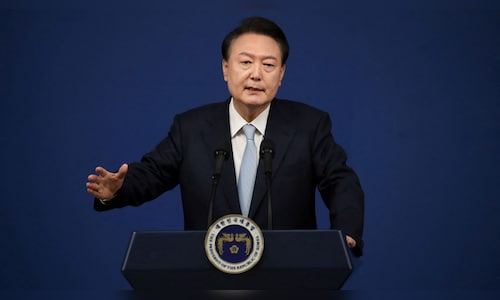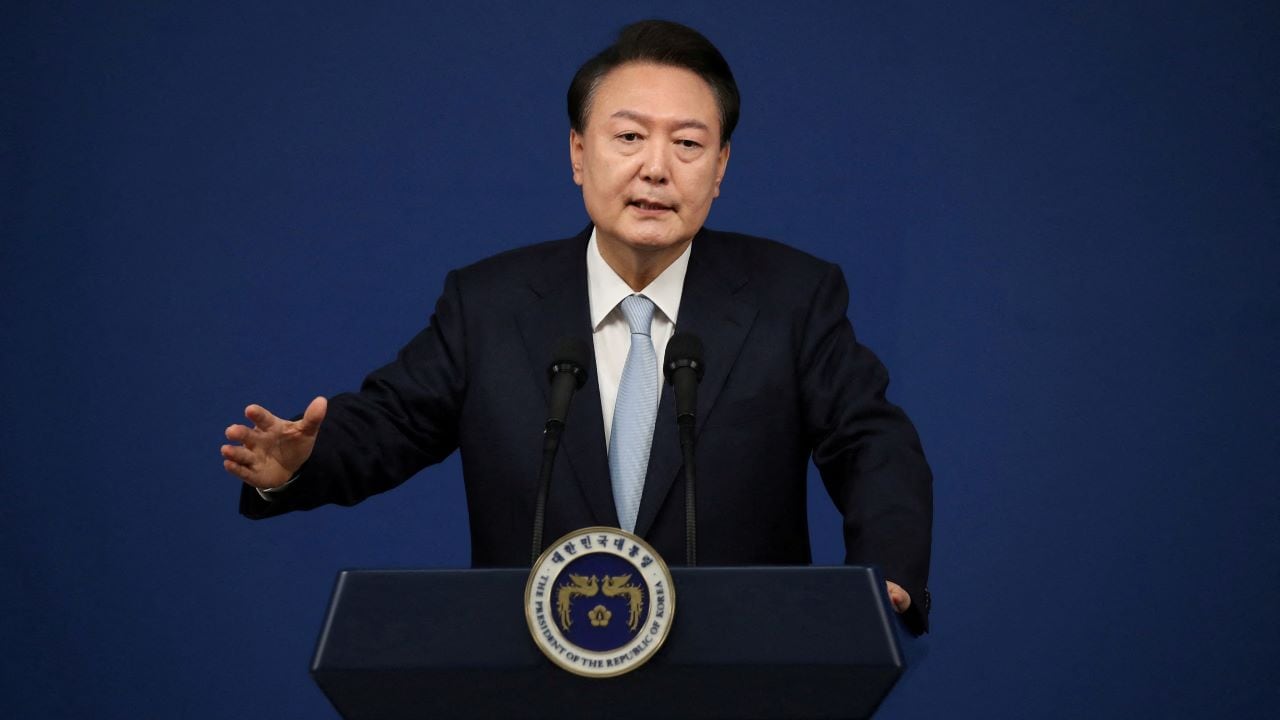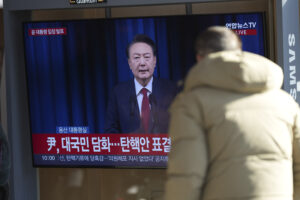

Addressing the nation on Saturday, December 7, morning President Yoon apologised for the “anxiety” caused by his actions but refrained from resigning. Instead, he deferred the decision on his political future to his party.
To pass the impeachment motion, the opposition requires support from at least eight members of Yoon’s People Power Party, ensuring the two-thirds majority needed. If successful, Yoon’s powers would be suspended while the Constitutional Court deliberates on his potential removal from office.
The crisis erupted on Tuesday (December 3) night when Yoon declared martial law, triggering an urgent response from lawmakers who rushed to parliament to oppose the order. In dramatic scenes, some opposition MPs climbed walls and forced their way past soldiers to cast their votes. The martial law directive was eventually revoked by the Cabinet early on Wednesday morning.
As of Saturday, ruling party lawmakers were still engaged in closed-door discussions and had not entered the main chamber for the vote. The People Power Party has also voiced its opposition to the impeachment motion and a separate proposal to investigate allegations involving the first lady.



